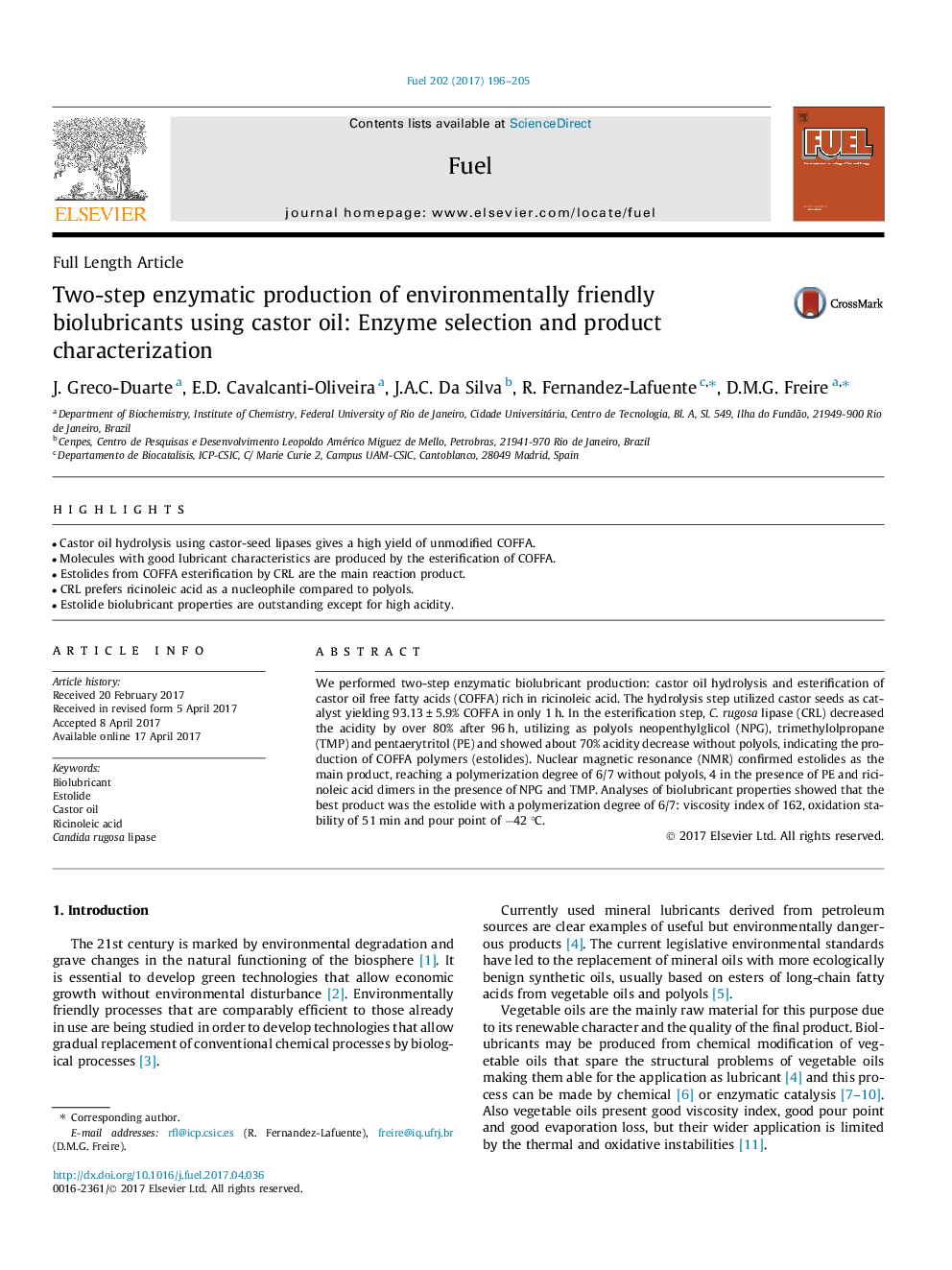| Article ID | Journal | Published Year | Pages | File Type |
|---|---|---|---|---|
| 6474545 | Fuel | 2017 | 10 Pages |
â¢Castor oil hydrolysis using castor-seed lipases gives a high yield of unmodified COFFA.â¢Molecules with good lubricant characteristics are produced by the esterification of COFFA.â¢Estolides from COFFA esterification by CRL are the main reaction product.â¢CRL prefers ricinoleic acid as a nucleophile compared to polyols.â¢Estolide biolubricant properties are outstanding except for high acidity.
We performed two-step enzymatic biolubricant production: castor oil hydrolysis and esterification of castor oil free fatty acids (COFFA) rich in ricinoleic acid. The hydrolysis step utilized castor seeds as catalyst yielding 93.13 ± 5.9% COFFA in only 1 h. In the esterification step, C. rugosa lipase (CRL) decreased the acidity by over 80% after 96 h, utilizing as polyols neopenthylglicol (NPG), trimethylolpropane (TMP) and pentaerytritol (PE) and showed about 70% acidity decrease without polyols, indicating the production of COFFA polymers (estolides). Nuclear magnetic resonance (NMR) confirmed estolides as the main product, reaching a polymerization degree of 6/7 without polyols, 4 in the presence of PE and ricinoleic acid dimers in the presence of NPG and TMP. Analyses of biolubricant properties showed that the best product was the estolide with a polymerization degree of 6/7: viscosity index of 162, oxidation stability of 51 min and pour point of â42 °C.
